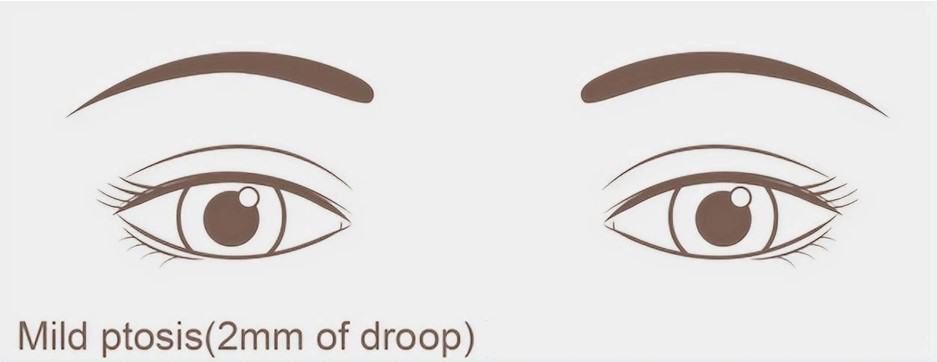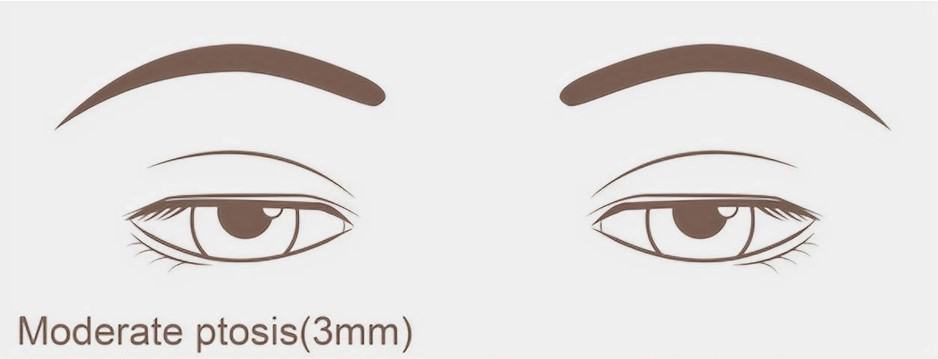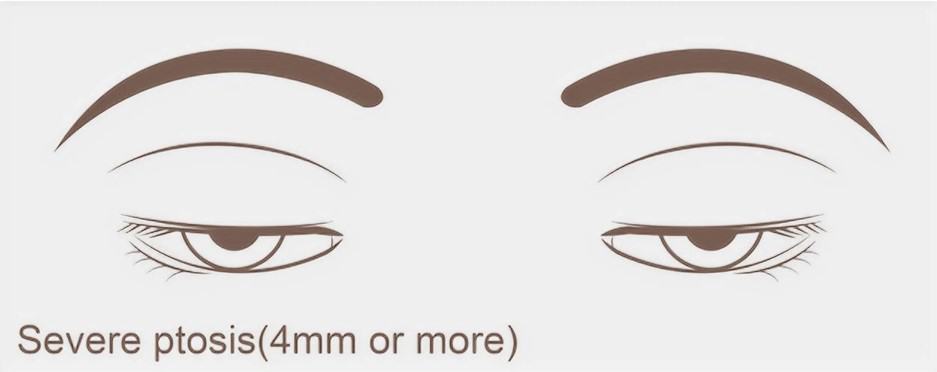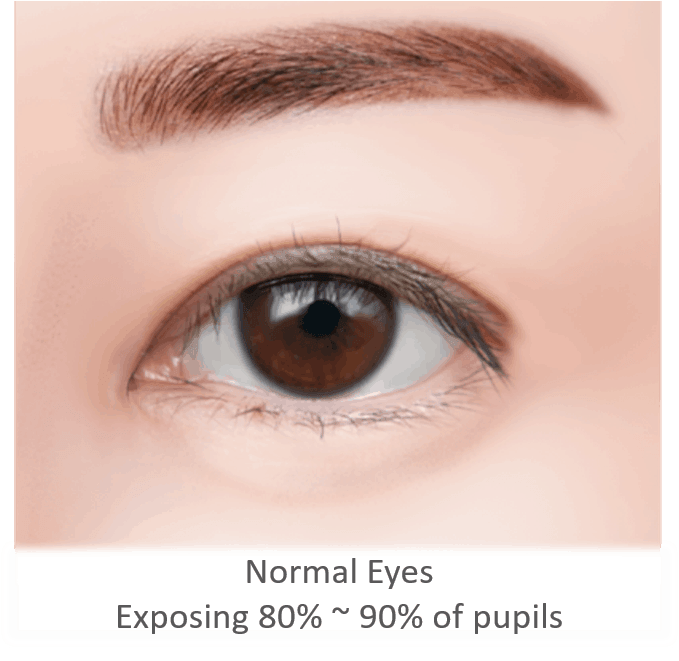Ptosis refers to the condition of droopy eyelids and ptosis correction surgery may be recommended to improve one’s vision or aesthetic appearance. If ptosis is present at birth, it is known as congenital ptosis. If it develops later in life, it is known as acquired ptosis.
The effects of ptosis can vary from individuals and affect one eye or both. When ptosis affects only one eye, it is known as unilateral ptosis, and when it affects both the eyes, it is known as bilateral ptosis.1
Depending on how severe your condition is, droopy upper eyelids can significantly decrease or completely block your vision. Though some ptosis conditions can be corrected temporarily with non-surgical solutions, for most people, ptosis surgery may be required for correcting droopy eyelids.
Ptosis surgery is a common procedure in Singapore and it can effectively reduce the drooping of your eyelids.2 Medically, ptosis surgery is also referred to as blepharoptosis.
Here’s everything you need to know about Ptosis – its causes, treatment, and more.
Who is most susceptible to developing Ptosis?
Anyone can develop droopy eyelids, and there is not much difference in the prevalence rate between men and women or between different ethnicities. There can be many different causes of ptosis – these range from natural causes such as aging, to more severe medical conditions. Your doctor will be able to diagnose the exact underlying cause.
Symptoms of Ptosis
The main symptom of ptosis is, of course, the sagging or drooping of one or both upper eyelids. In some cases, this sagging of the eyelids can affect your vision.
If you have ptosis, you may also experience extremely watery or dry eyes, and your face may look tired or weary. The primary areas affected will be around the eyes, and you may also experience frequent migraines or headaches when the eyes are strained for long hours.
People with severe ptosis may need to tilt their heads back to see properly, even while having a conversation.
In persistent droopy eyelids cases, a doctor will attempt to first rule out any other underlying conditions before ascertaining if ptosis surgery is right for you.
Danger & Risk Associated with Ptosis
When droopy eyelids start to affect one’s vision, it can cause inconvenience to a person’s daily life. Poor vision can make one more susceptible to falls or affect the ability to look out for danger. The risk of falls and injury with a compromised vision tends to be higher among elderlies.
If one is unsure about their droopy eyelid condition and treatment options, they can approach a medical professional in Singapore. A proper assessment will allow doctors to identify if Ptosis Correction Surgery is necessary.
Treatment of Ptosis


 Ptosis correction depends on the underlying cause of the condition as well as the severity of the drooping. The recommended treatment or ptosis surgery technique will be recommended based on individual needs.
Ptosis correction depends on the underlying cause of the condition as well as the severity of the drooping. The recommended treatment or ptosis surgery technique will be recommended based on individual needs.
Temporary Ptosis Eyelids
Certain medical conditions may cause temporary ptosis conditions. In such cases, there are specialized glasses that hold up the eyelids. These are known as a ptosis crutch and can be a ptosis correction option in less severe ptosis cases.
This treatment, though, is usually only recommended if the condition is temporary. Glasses are also recommended if you are not the right candidate for ptosis surgery.
Mild Ptosis Eyelids
In the initial onset of ptosis, it may present itself as an aesthetic concern more so than a functional issue. At this stage, non-invasive treatment options such as Botox injections to selected muscle groups around the eyes can help to lift the eyelids.
While the results are temporary, this is recommended for those who are not prepared to undergo ptosis surgery. Individuals who prefer a more long-term solution can consider ptosis correction as a treatment option.
Moderate to Severe Ptosis Eyelids
In cases of moderate to severe ptosis where a person’s vision is affected, doctors are likely to recommend ptosis surgery. During ptosis surgery, the levator muscle is tightened.8 This procedure serves as ptosis correction as it lifts the eyelid into the correct position. For children with ptosis, doctors may recommend ptosis surgery to prevent the onset of amblyopia or lazy eye.9
Can Ptosis Be Prevented?
Even though there is no total prevention for ptosis conditions, some lifestyle and habitual adjustments can help to slow down the onset of aging. Making an effort to avoid rubbing your eyes excessively, reducing any pulling or tugging from contact lenses application, and go easy on the eyelids during make up application helps to preserve the eyelid’s condition at its best.
Individuals with ptosis conditions can stop it from getting worse by seeking early treatment. It should be taken seriously because it can affect your vision as the eyelid muscles deteriorate over time. Getting regular eye checkups and a better understanding of your ptosis condition from your doctor can help you plan your treatment journey and decide if ptosis surgery is necessary.
What is the Outlook for Ptosis?
Ptosis is not a life-threatening condition and doesn’t pose any harm to your health. However, if the drooping eyelids start to block your vision, you should avoid doing activities such as driving or operating heavy machinery until your condition is treated.
Elderlies who may have started developing ptosis eyelid conditions should exercise more caution and observe for any vision obstruction as that can affect their safety or physical mobility.
The long-term outlook for ptosis depends on the cause of the sagging eyelid. Most of the time, ptosis correction through ptosis surgery can help treat the problem before it worsens.
About Dream Aesthetics and Plastic Surgery
Bespoke surgical for cosmetic or medical reasons is what Dream covers to bring out the beauty in every individual. Going beyond the aesthetics and working on physical anomalies are what we value the most in leading our patients to cherish self-improvement and confident lifestyles.
Derived from Associate Professor Vincent Yeow’s long-standing experience performing plastic surgery in Singapore, our treatment plans deliver physical remodelling in our patients’ favour. One of the notable remodellings is droopy eyelid correction. The ptosis surgery used for treatment eventually fixes drooping eyelids, improves vision and enhances appearance.
Most importantly, as a trustworthy plastic surgery and aesthetic clinic, we treasure positive and natural outcomes for each individual. We will ensure to deliver the beauty refinement of your dream without compromising your safety and privacy.







